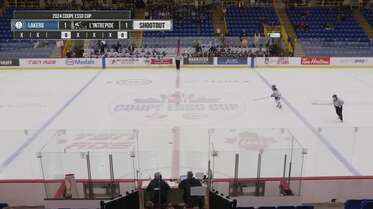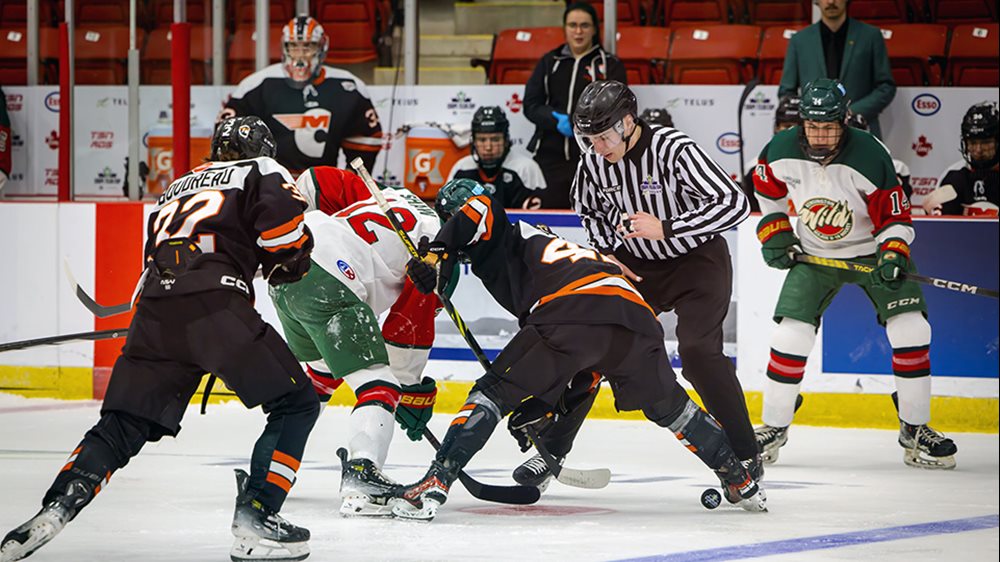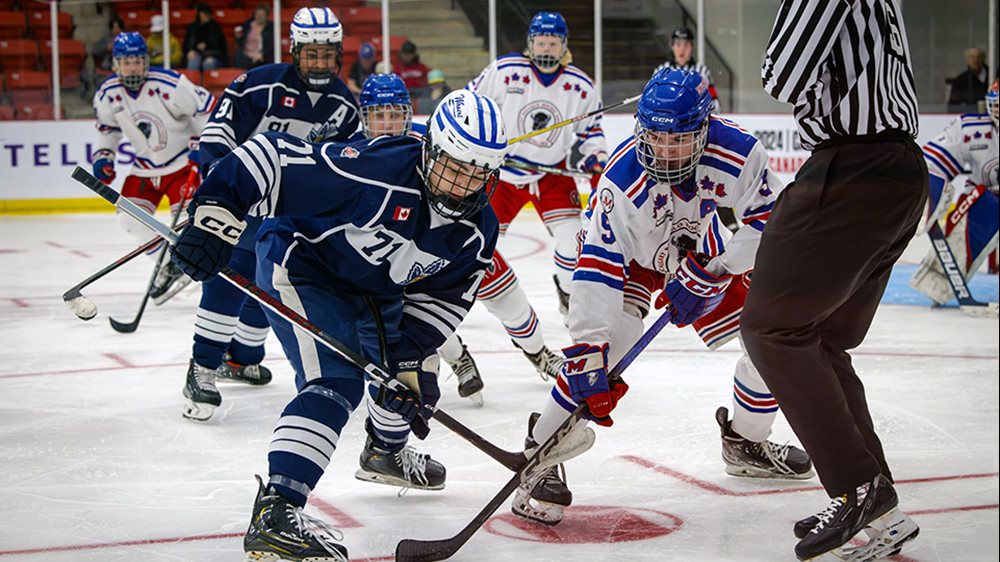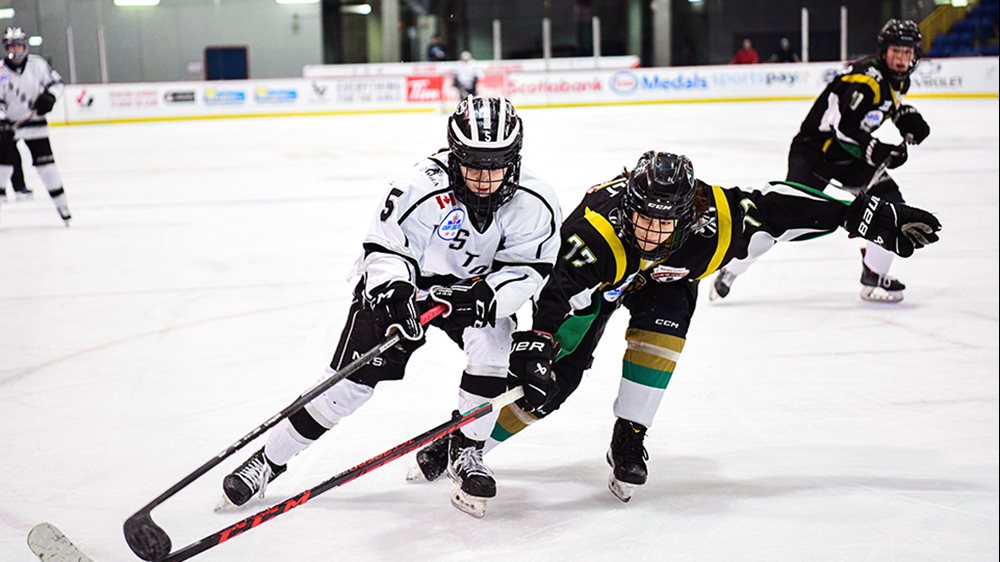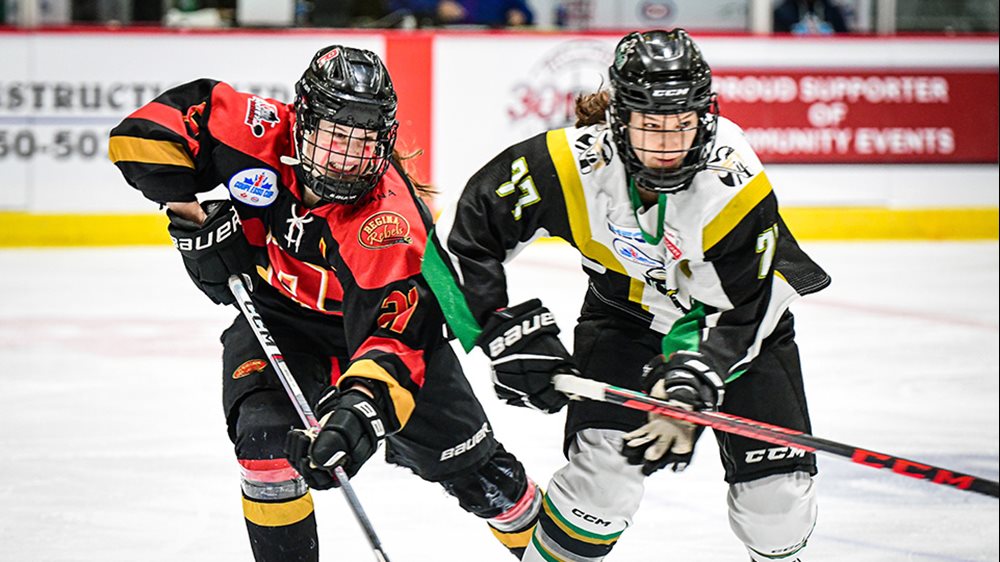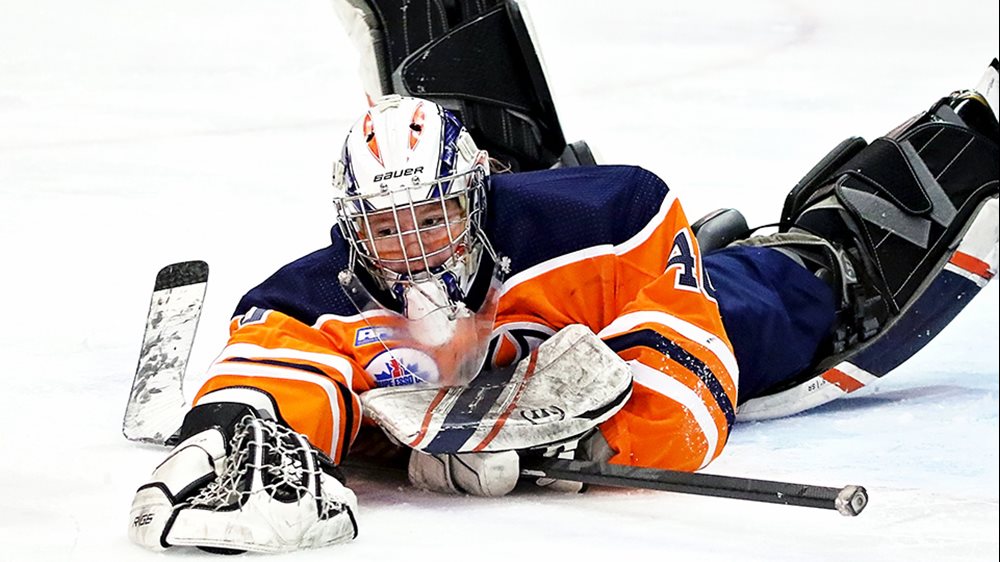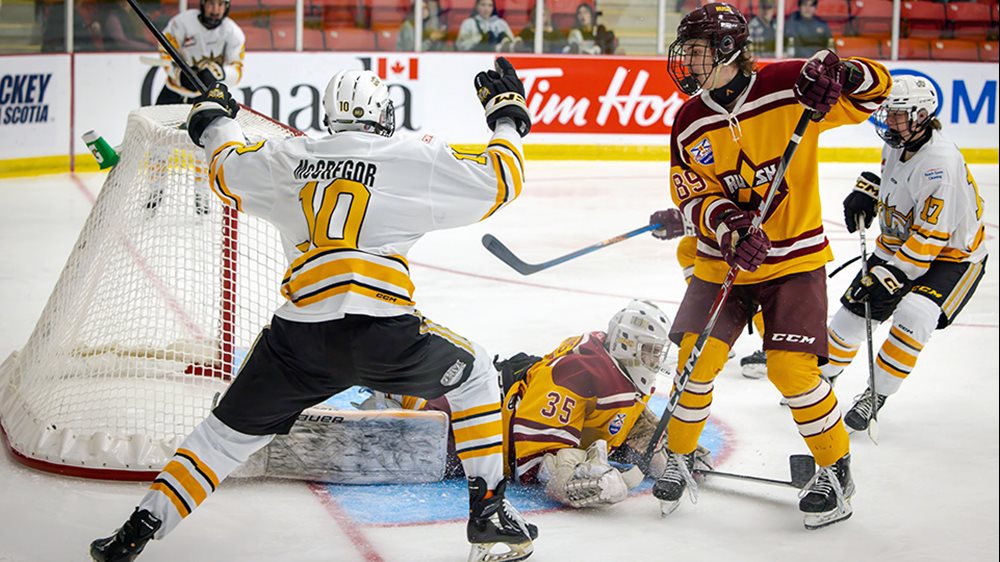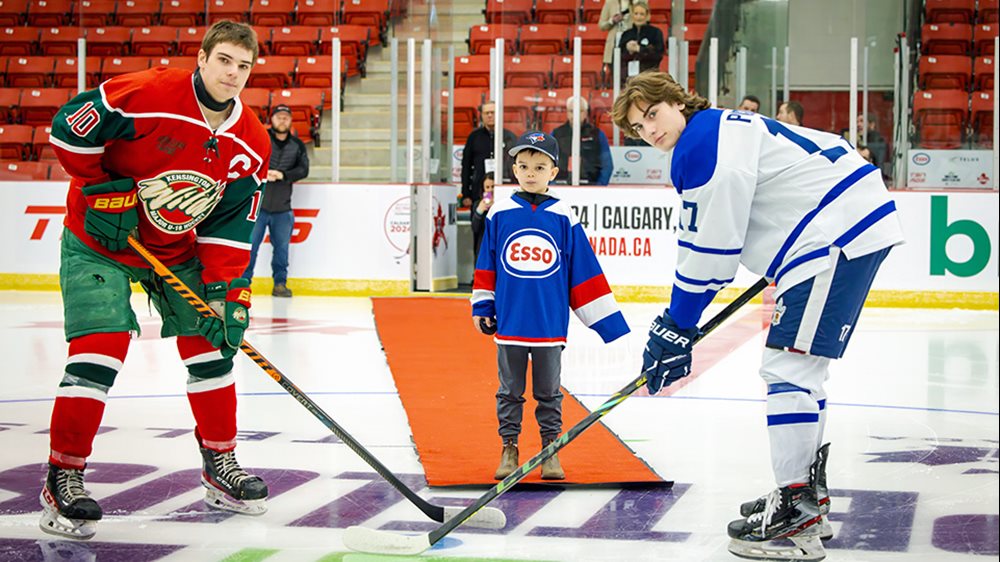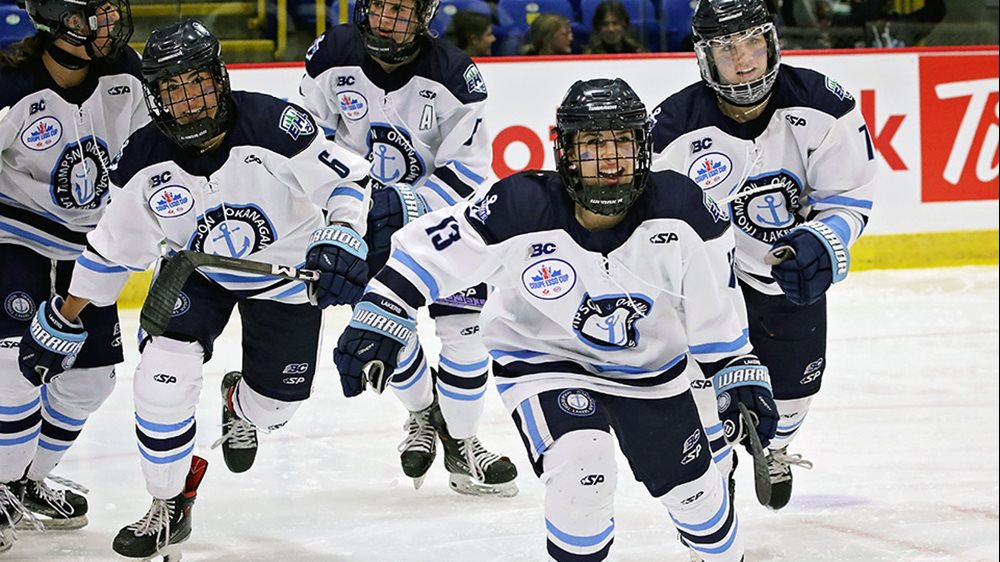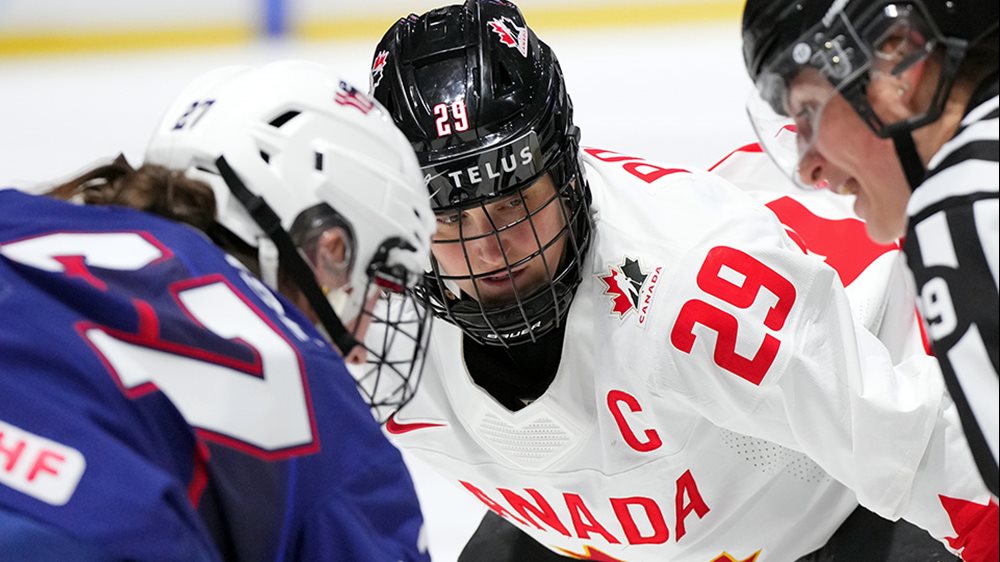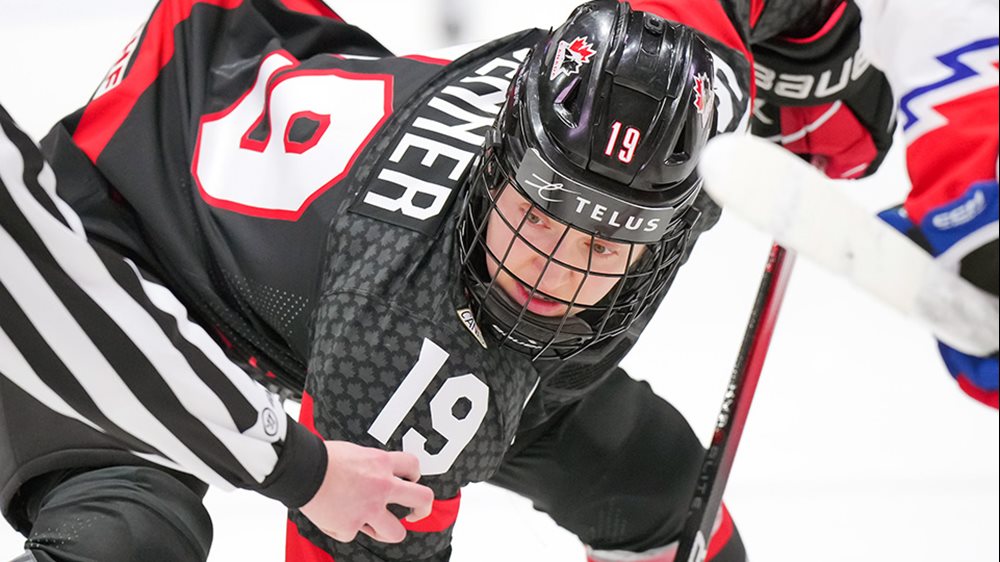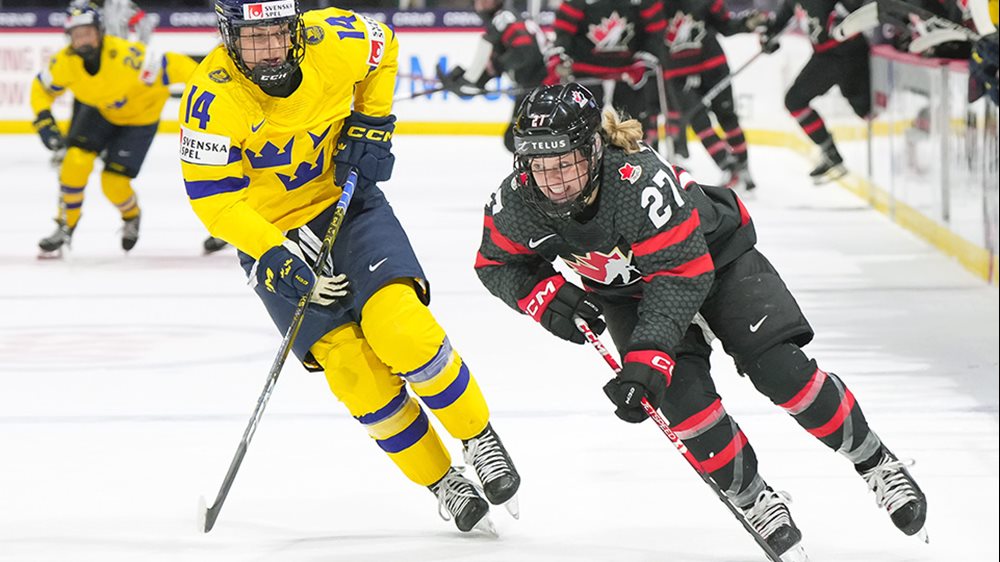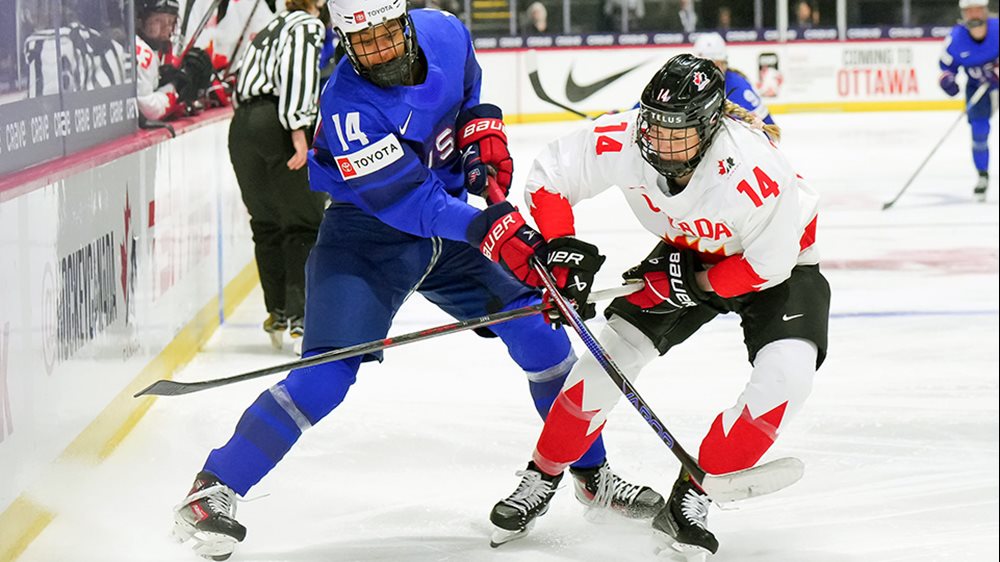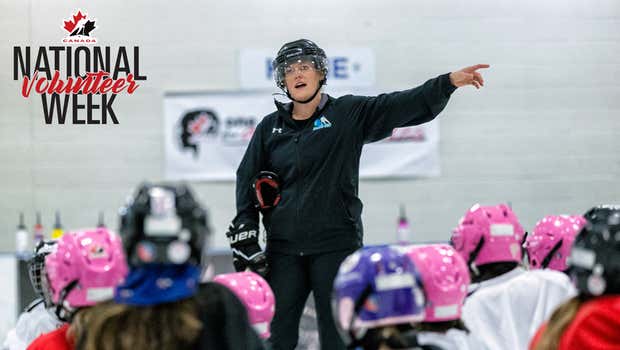
Making an impact in the North
A game-changer in women’s hockey, Kaylee Grant tirelessly gives her time across the territories, volunteering to ensure opportunities exist for women and girls
The first thing Kaylee Grant did when she moved to Yellowknife was find a hockey team.
The operating engineer took a one-year term to gain experience in her industry. Twelve years later, she’s still in the Northwest Territories and hockey has been a reason why she calls it home.
“You gravitate to what you know, and I knew sports,” Grant says. “When you join a sport, you instantly have 17 friends and a group where you feel accepted through a common goal and interest. When I moved to the North, I didn’t know how else to meet friends, so I went to the rink right away.”
Grant grew up around the rink in Antigonish, Nova Scotia. The community was also a hockey hotbed, supporting its Junior A, Junior B and university teams. Being around that passion and community made hockey an important part of her life.
“Playing hockey is what we did,” Grant says. “The community rallied behind our teams and the rinks were full, the atmosphere was great, and hockey was so prominent.”
She played minor hockey in Nova Scotia before moving to Newfoundland and Labrador to play at Memorial University. At 23 years old, she made the move to Yellowknife and knew she would find her community inside a rink.
“I find that the easiest thing to do when you come to a new place to meet people is through sport,” she says. “With joining a hockey team, I was already creating a group of people that were like-minded in interests and similar age. Plus, there are so many opportunities in the North to grow as coaches, players and mentors that have been so helpful.”
Grant’s love for the game wasn’t just as a player—she expanded her knowledge
by getting into coaching while in Nova Scotia. She started as an off-ice
coordinator with the Antigonish Bulldogs women’s under-18 team.
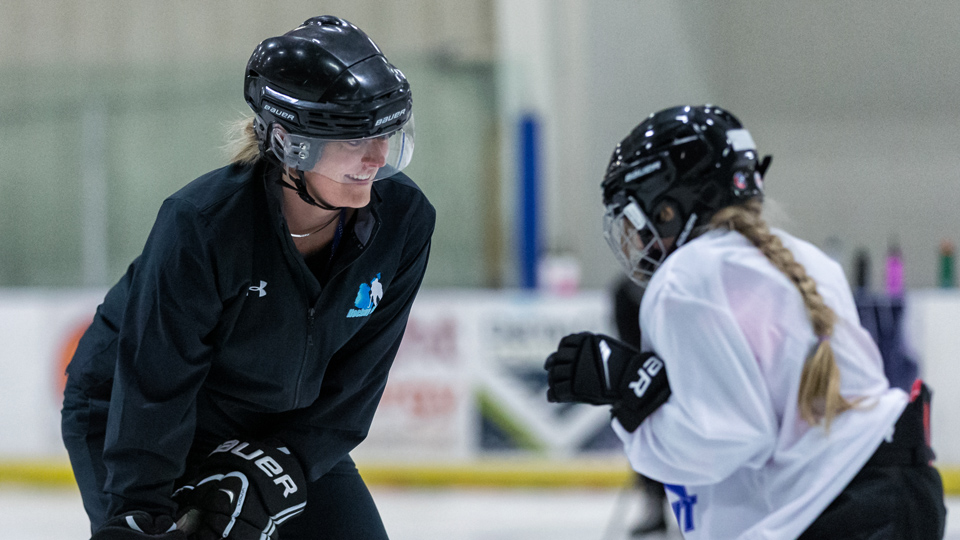
She did her Coach Development 1 training before getting her High Performance 1 training and evaluation certification. She continued to pursue additional coaching certification and training over the years to educate herself and give back to her community.
“I think seeing the female game continuously grow and develop that keeps me interested,” Grant says. “I love to see the progress in my players. I love seeing these players grow and adapt as individuals. Seeing them get involved in coaching is the coolest part.”
Her coaching philosophy is to develop a player’s passion for the game, be a role model and create an environment that is positive for women and girls.
Coaching and mentoring young girls are important to Grant, and she saw that path was through high-level opportunities, particularly by becoming a facilitator to drive more players into the coaching route. She has been working with Hockey North and the Hockey Canada Women Master Coach Developer program, which is focused on removing barriers to coaching education for women.
“Kaylee has volunteered at pretty much every level and she’s getting more involved with training coaches and being a clinician, which is an amazing progression for her,” says Kyle Kugler, executive director of Hockey North and a close friend of Grant. “She’s a great ambassador for hockey by giving back to other coaches through her experiences and helping with their development.”
Through being a volunteer coach, Grant has been able to experience some highlights with her teams, including as head coach for the Arctic Winter Games and Canada Winter Games, and as an assistant coach for Team North at the National Aboriginal Hockey Championship.
“Hockey North has given me so many opportunities and having that support has impacted me as a coach,” Grant says. “I enjoyed every year with those territorial teams and those experiences are a very big reason why I stay here – the coaching opportunities and knowing that we continually have room to grow.”
Another event that Grant was a key volunteer for was the inaugural One For All festival held in Yellowknife in February. It was a four-day event for women and girls from across the N.W.T. and Nunavut that included goaltending clinics, on-ice scrimmages and other off-ice experiences. The event was launched in partnership with Hockey Canada and Hockey North to celebrate the sport and grow grassroots hockey in the North.
“Kaylee is one of our co-leads in the North, and when we set out to deliver this programming in Yellowknife, it was a no-brainer that she would be involved. And typical Kaylee, she just runs with a task and completely owns it,” says Katie Greenway, manager of women’s and girls’ hockey with Hockey Canada. “To have champions like Kaylee that dedicate themselves to their community and sport is so important.”
Giving back through coaching is just what Grant does—it’s like a hobby for her and she does it for others and to see more women in the sport, not for what it could bring to her.
“I’ve known Kaylee for a few years now and she has so much on her plate, but she never says no,” Greenway says. “She doesn’t do it for the accolades, but out of the goodness of her heart with a smile on her face. She’s fantastic and is really impacting everyone that she comes across.”
Grant’s impact on hockey in the North has been felt by many of the girls she has coached, mentored and played with over the past 12 years, but it’s the bigger picture that is most important to her.
“I’m not going to say that myself, individually, has drastically impacted female hockey in the North. I think I am a very small portion of what’s been going on in the North in the last 10 years,” Grant says. “I would like to think that I have helped develop more female coaches and I’ve been a good role model. I think if I have impacted hockey in the North, its pushing players to want to coach a little bit, but it’s a collective—everyone has left their mark on the female game.”
For Kugler, as the lone administrator for Hockey North, having volunteers like Kaylee is so critical to the work and development of hockey players.
“I think volunteers are essential for the delivery of anything in small communities in the North,” he says. “[Kaylee] takes on more than we even realize. Coaches have a huge influence on teams and athletes and she’s a positive role model and advocate for female hockey. She’s selfless with her time and she’s just an awesome person.”
Interested in becoming a coach? Visit HockeyCanada.ca/Coaching, or contact your local hockey association or Hockey Canada Member for more information.
For more information: |
- <
- >

